Andriy Shevchenko urges the world not to forget Ukraine: ‘The cold is coming. Russia will try to hit our energy’
Almost two years into Russia’s devastating invasion, one of Ukraine’s most famous exports is desperate to keep shining a light on his country’s plight, writes Lawrence Ostlere, as global attention shifts to the Middle East

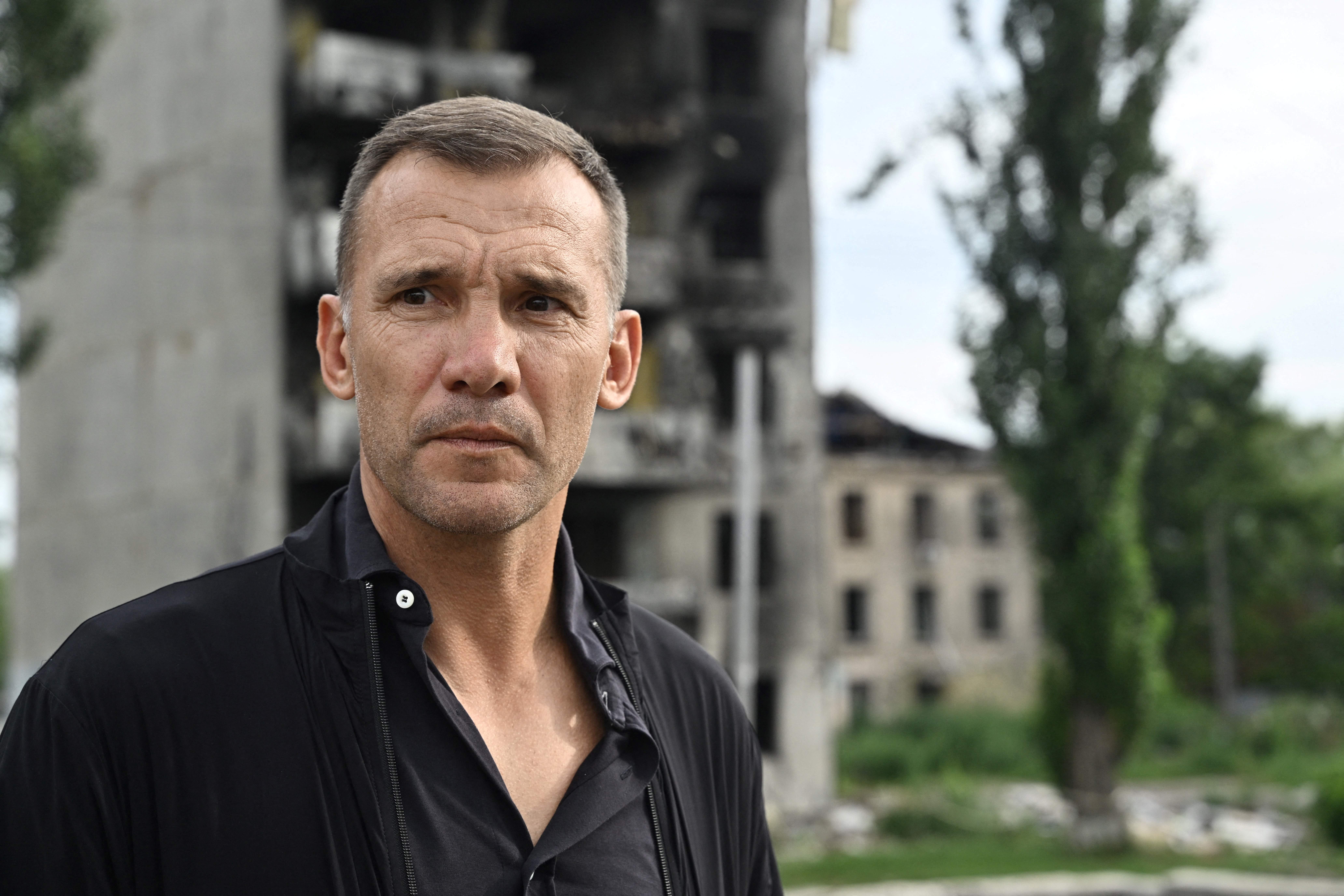
On the morning of 24 February 2022 – a date etched in every Ukrainian’s mind – Andriy Shevchenko was woken by a phone call from his mother. She told him through tears that Russia was invading. Shevchenko was in London, where he lives with his wife and four sons; his mother and wider family were in Ukraine, under attack.
Shevchenko has barely slept ever since. “It’s almost impossible,” he says. “It’s going to be almost two years since the full war started, and every day I wake up, check the phone – what’s the news? Are we going to be attacked in Kyiv? Are we going to be attacked in a different city? How many drones? How many rockets? Where have the rockets hit? And then, talking to my friends – who’s dead? It’s a normal day for us.”
Shevchenko is using his platform as one of Europe’s greatest footballers, a Ballon d’Or winner and a Chelsea cult hero to keep the spotlight on Ukraine at a time when the world’s attention has turned to the Middle East. In the West, the initial shock caused by Russia’s invasion has subsided, and a sense of normalisation has crept in. He is understandably worried that Ukraine’s cause might be forgotten.
“I hope not,” he says. “It is my job to bring focus back to Ukraine. Because for us, it’s everything. For us, it’s exist or not exist.”
Dressed in a sharp suit and polished shoes, Shevchenko is speaking at an event organised by the Oxbridge Foundation at the plush Le Manoir hotel in Oxford, helping to launch a scholarship programme for Ukrainian students affected by the war. It is a world away from life in Ukraine, to where he travels every month to see family and friends and witness the damage caused to their lives.
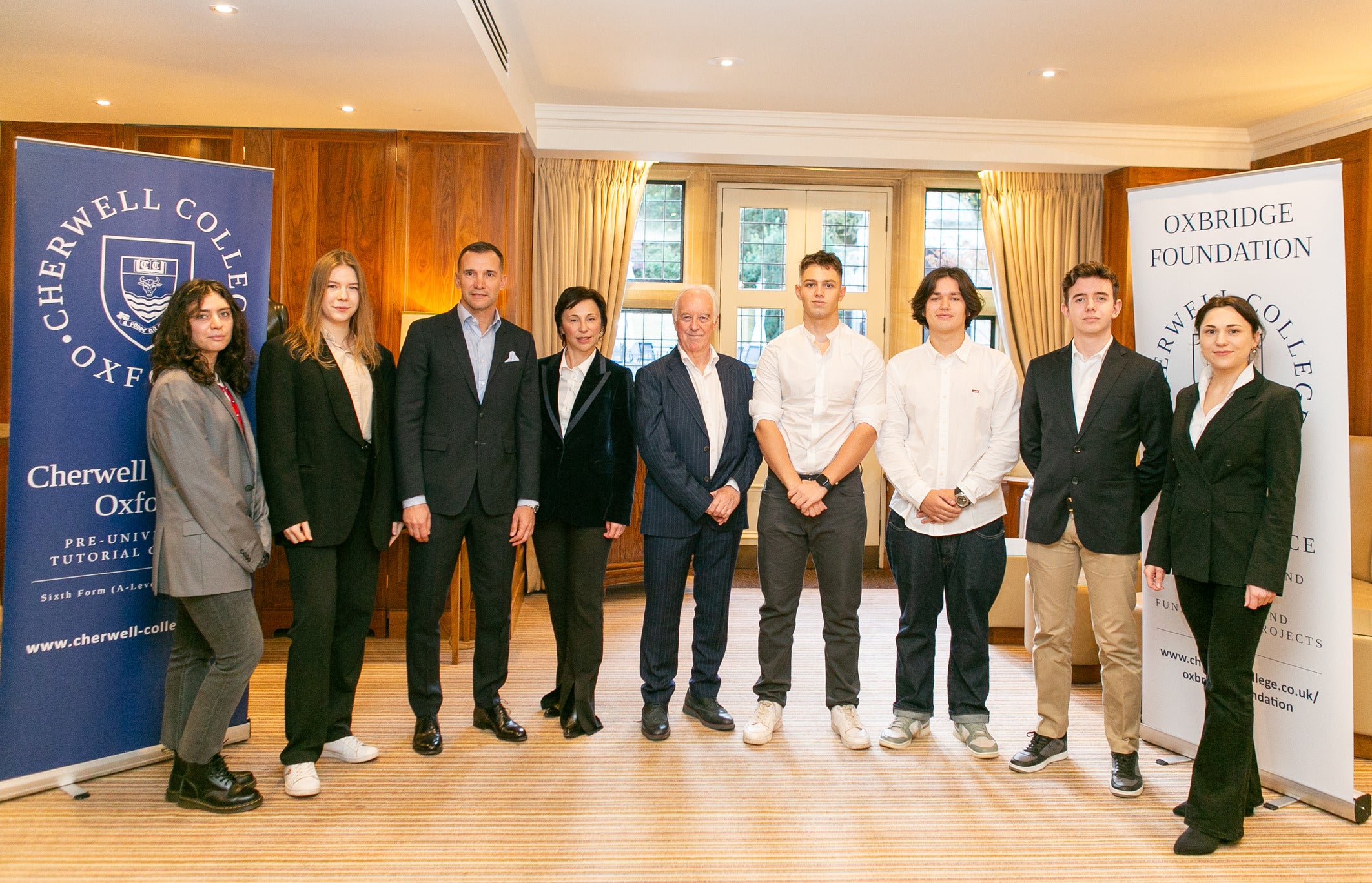
Everything has changed. Even the air smells different from how it did before the war. Now winter is coming, and there is a growing expectation that Russia will exploit falling temperatures to hurt Ukrainian morale. The fear is that the world will be looking the other way when Russia strikes.
“I always visit the clinic, the hospitals, the rehabilitation centre – talk to the people, talk to the children, talk to the soldiers,” Shevchenko says. “We try to live a normal life, but now the cold is coming and we all know that the Russians will try to hit our important energy [facilities]. This is what we are afraid of. But we believe in our anti-missile systems.
“When you go [to Ukraine], you know what to expect because it’s the worst. You know that there’s going to be [air-raid] sirens, there’s going to be a chance that the rockets and drones come. But we don’t give up. We have to bring the attention of the rest of the world to help Ukraine.”
Football is like therapy. Most of these kids ... have seen very, very bad things
Shevchenko is more than just a former footballer in his homeland. He was Ukraine’s captain, then manager; he is up there with grain and sunflower oil as one of their greatest exports, an emblem of Ukraine abroad. He is more statesman than sportsman these days, and in September he was appointed an external adviser to the country’s president, Volodymyr Zelensky.
His efforts in championing Ukraine abroad were recently hailed by his old friend and strike partner Serhiy Rebrov. The duo spent years together plundering goals for Dynamo Kyiv and Ukraine; now they are de facto leaders for their country again: Shevchenko as an ambassador of the cause, and Rebrov in the prestigious role of Ukraine men’s national team manager, which Shevchenko left two years ago.
“He supports everyone, not just [the team],” Rebrov said. “For what he is doing and for how he played, Shevchenko set the example as a great Ukrainian.”
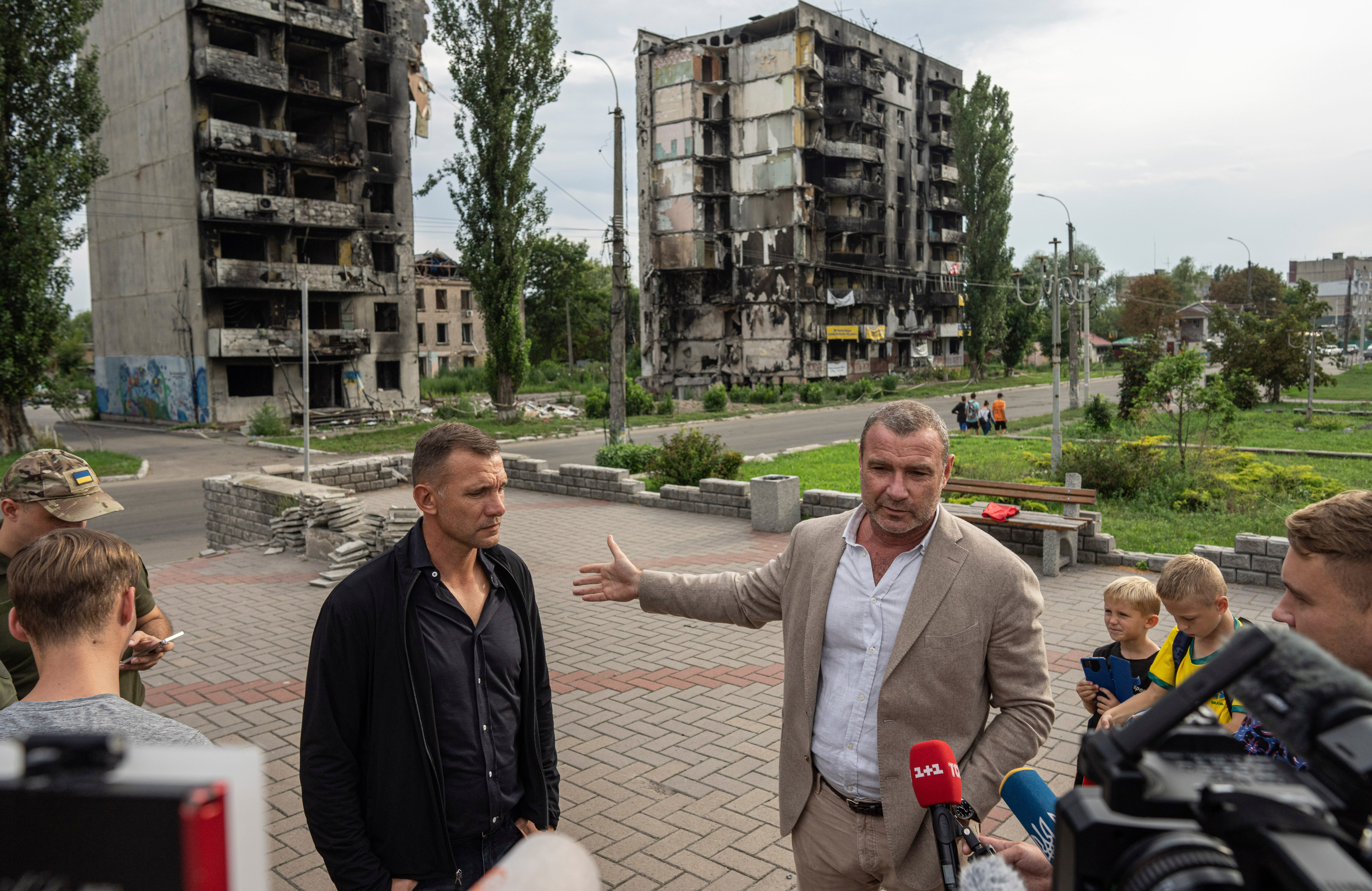
Rebrov’s task is to lead his country to Euro 2024 next summer, partly to provide a little escapism and inspiration to his people watching on, and also to bring attention to the national cause. There are few bigger stages in sport than football’s European Championship. “We are alive thanks to our armed forces in Ukraine, and we live for them, too,” Rebrov said recently. “Our players know what we are playing for.”
Ukraine’s qualifying campaign has had to be played across Europe, with matches hosted in Slovakia, Poland and the Czech Republic, and it ends on Monday night in Leverkusen, Germany, against Italy in an all-or-nothing contest. Both teams have the same points tally, and only one can qualify for Euro 2024. Ukraine must win; for Italy, a draw will do. Arsenal’s Oleksandr Zinchenko has described it as “the game of our lives”.
Shevchenko believes the national sport has a crucial role to play in uniting and restoring Ukraine. Together with Zinchenko, he helped to organise the Game4Ukraine at Stamford Bridge in August, a charity match that raised £1m to fund the rebuilding of a bombed school in Chernihiv. In Kyiv, he supports a centre for displaced children from Mariupol, where football “is a little bit like therapy”, he explains. “Let them play sport to forget about what’s going on, because most of these kids went through a very, very difficult moment and I’m sure they’ve seen very, very bad things.”
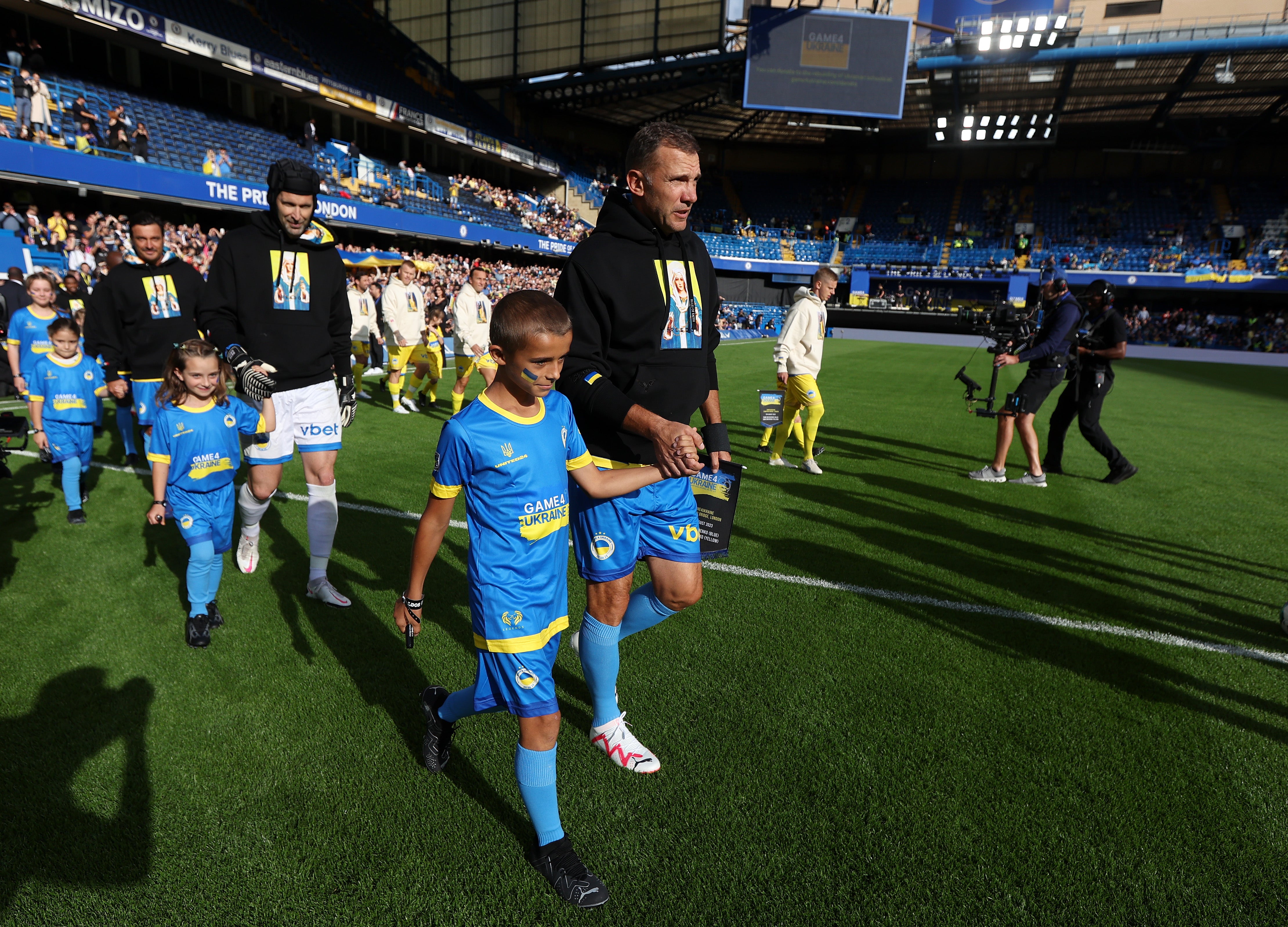
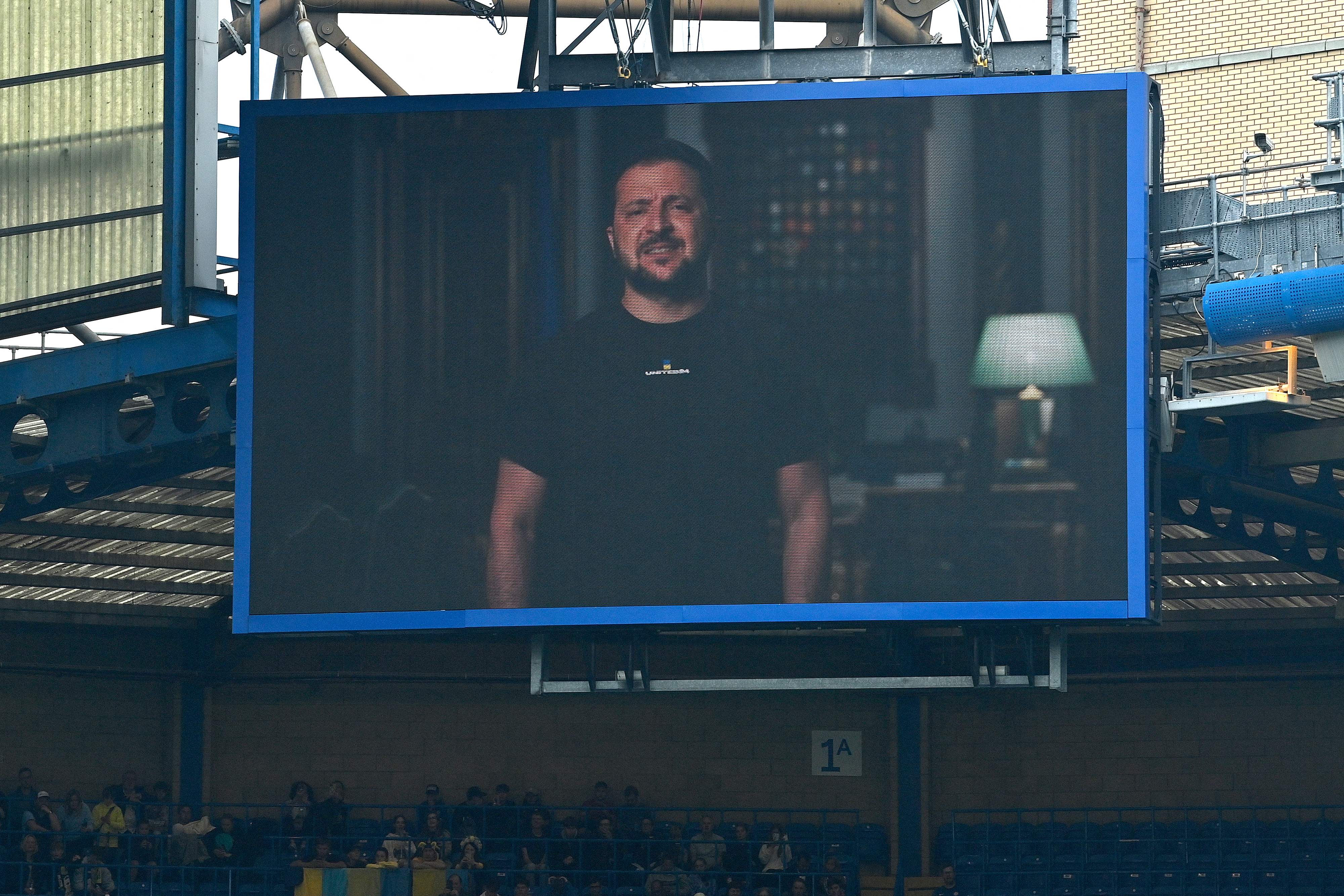
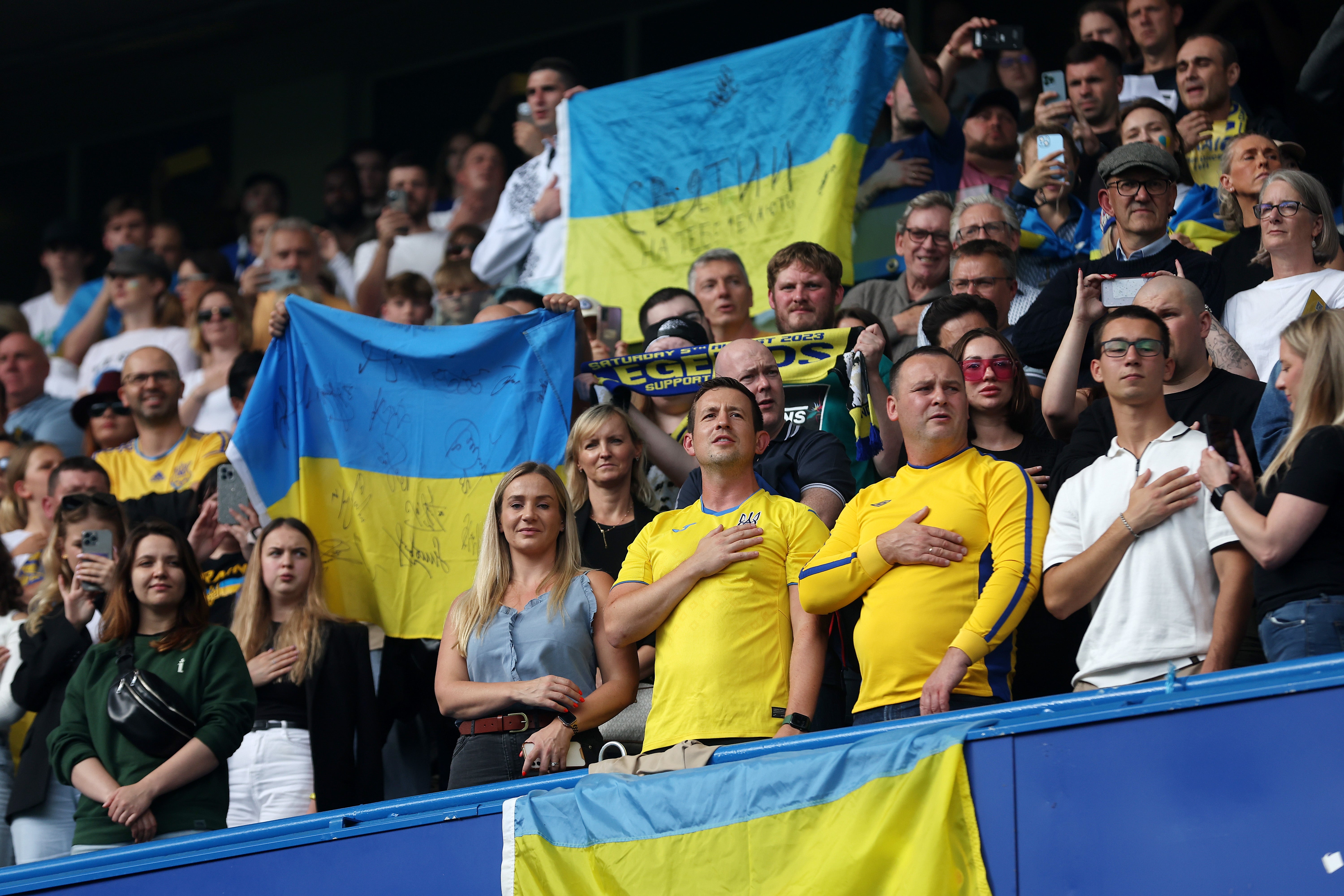
His backing for the Oxbridge Foundation is built on the same premise. The foundation was set up earlier this year to enrol gifted Ukrainian teenagers on a one-year intensive programme that combines A-level studies with entrepreneurship courses at Oxford University and the University of California, Berkeley. “I can see the potential in this project to build the next generation and the future of this country,” Shevchenko says.
The founder of the foundation, Stephen Clarke, is principal of Oxford’s Cherwell College and a former British diplomat, and he warns that rebuilding Ukraine will take 10 years or more. It is a stark reminder of the work ahead, and that the wider world’s support for Ukraine will be needed for a long time to come.
Shevchenko will never stop raising awareness of that fight. “I hope that sleeping through the night, for the whole of Ukraine, comes one day soon.”






Join our commenting forum
Join thought-provoking conversations, follow other Independent readers and see their replies
Comments